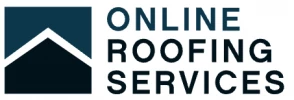Late updated: 23 Jul 2024 12:07
Written by: Oliver Bennett
Modern Metal Roofing Options For UK Homes: A Comprehensive Guide
Modern metal roofing options for UK homes are gaining popularity due to their durability, aesthetic appeal, and sustainability. These roofing solutions not only withstand harsh weather conditions such as rain, wind, and snow, but they also bring a unique and modern look to homes. Additionally, with options like steel, aluminium, and zinc, there is a wide variety of choices to suit various architectural styles and homeowner preferences.
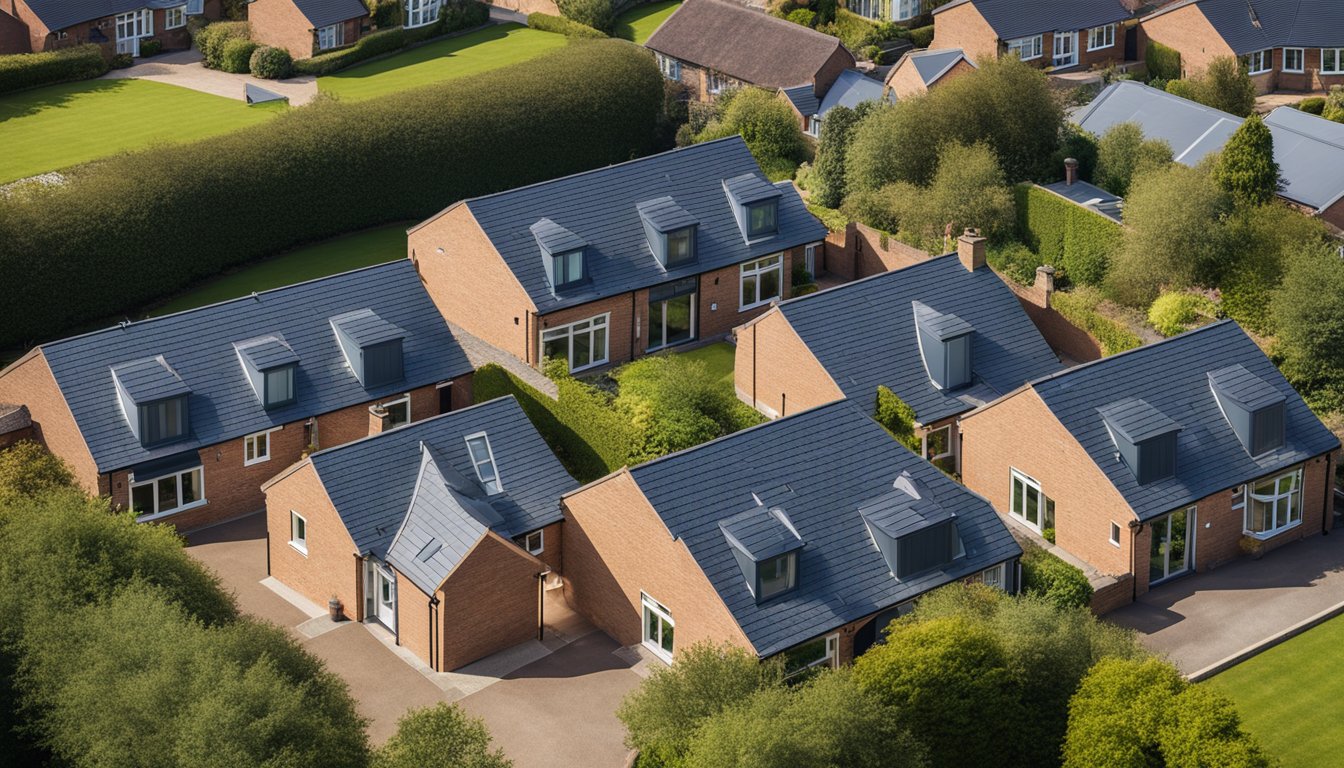
One of the key advantages of metal roofing is its longevity. Unlike traditional roofing materials which may succumb to wear and tear more quickly, metal roofs can last for decades with minimal maintenance, making them a practical and cost-effective choice. Moreover, they offer excellent resistance to fire, mildew, and rot, ensuring that the protective function of your roof stands the test of time.
Sustainability is another noteworthy benefit, as many metal roofing options are recyclable and can reduce the overall environmental footprint of your home. By selecting modern metal roofing, we contribute to a more sustainable and eco-friendly building practice while enjoying the benefits of cutting-edge design and functionality.
Key Takeaways
- Metal roofs provide long-lasting, durable protection with minimal maintenance.
- Variety in materials like steel, aluminium, and zinc offers aesthetic and functional versatility.
- Choosing metal roofing contributes to sustainability and eco-friendly building.
Fundamentals of Metal Roofing
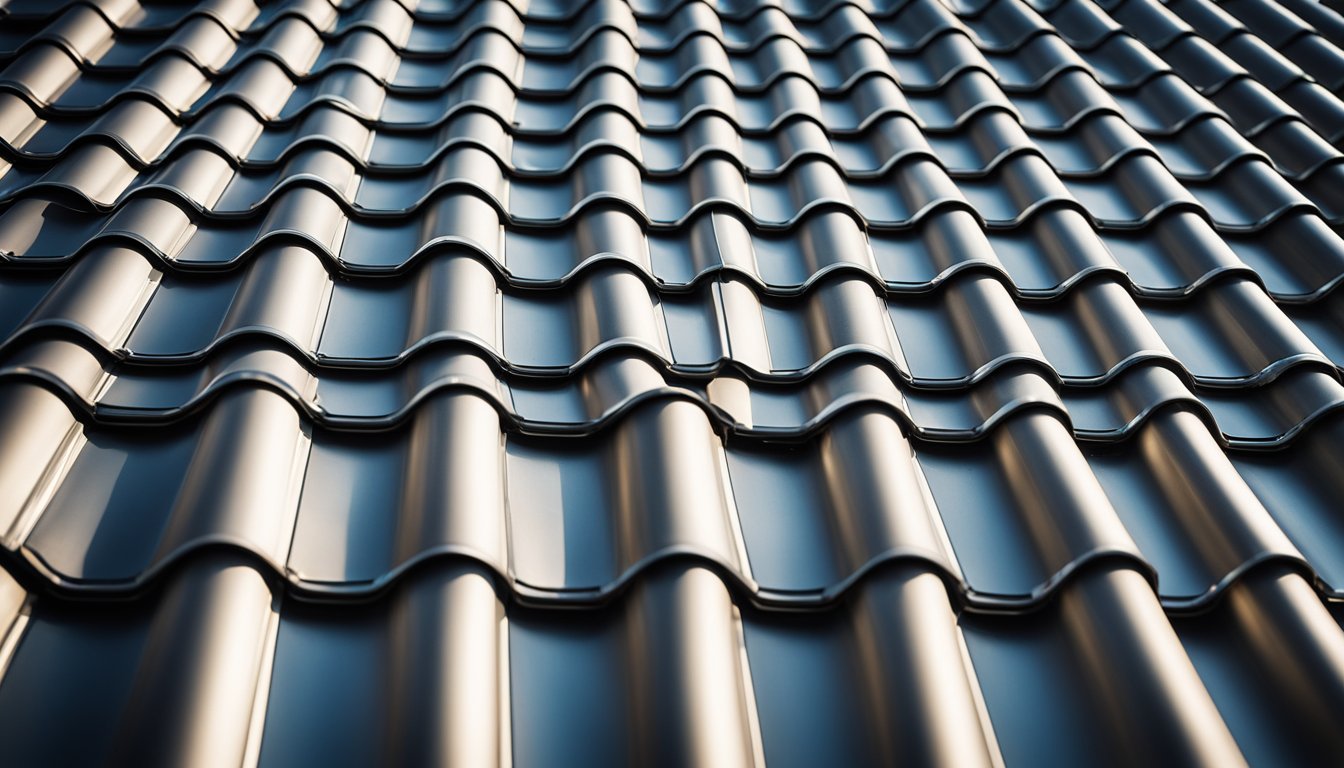
Metal roofing provides durable, aesthetically pleasing options for homeowners in the UK. From material comparisons to lifespan expectations, there are several key aspects to consider.
Comparing Materials: Metal Versus Traditional Alternatives
When selecting roofing materials, understanding the differences between metal and traditional alternatives like tiles, shingles, and slate is crucial. Metal roofs, such as steel, aluminium, and copper, often surpass traditional materials in durability and resistance to environmental factors.
Traditional roofing materials, like clay tiles and asphalt shingles, can be highly susceptible to weathering and typically require more maintenance. In contrast, metal roofing is generally fire, mildew, and rot resistant, and can reliably withstand harsh weather conditions. For homeowners prioritising eco-friendliness, steel and aluminium roofs offer 100% recyclability, making them a sustainable choice.
Assessing the Longevity and Durability of Metal Roofs
Metal roofs are renowned for their long lifespan and durability. A well-installed metal roof can last between 40 and 70 years, often outliving asphalt shingles by several decades. Materials like zinc and copper can even extend beyond that range with minimal maintenance.
These roofs are less prone to issues like cracking, erosion, or damage from severe weather. This longevity translates to fewer replacements and reduced maintenance costs over the lifetime of a home. Additionally, metal roofing's ability to reflect solar heat can enhance energy efficiency, promoting lower cooling costs during hot summer months.
Understanding Metal Roof Aesthetics and Styles
Modern metal roofs offer a wide variety of aesthetic options suitable for different architectural styles. Metal tile roofing combines the look of clay or concrete tiles with the lighter, more durable nature of metals. This style is particularly popular in Southwestern and Spanish-themed homes.
Vertical panel metal roofing, often seen in ribbed patterns, provides a sleek, contemporary look, enhancing the modernity of homes. Other popular choices include steel, aluminium, and copper roofing, each bringing unique visual appeal. Zinc roofs, for instance, offer a distinctive patina that evolves over time, adding a timeless charm.
By offering diverse styles and colours, metal roofing allows homeowners to achieve the desired aesthetic without compromising on strength and durability.
Practical Considerations for UK Homeowners
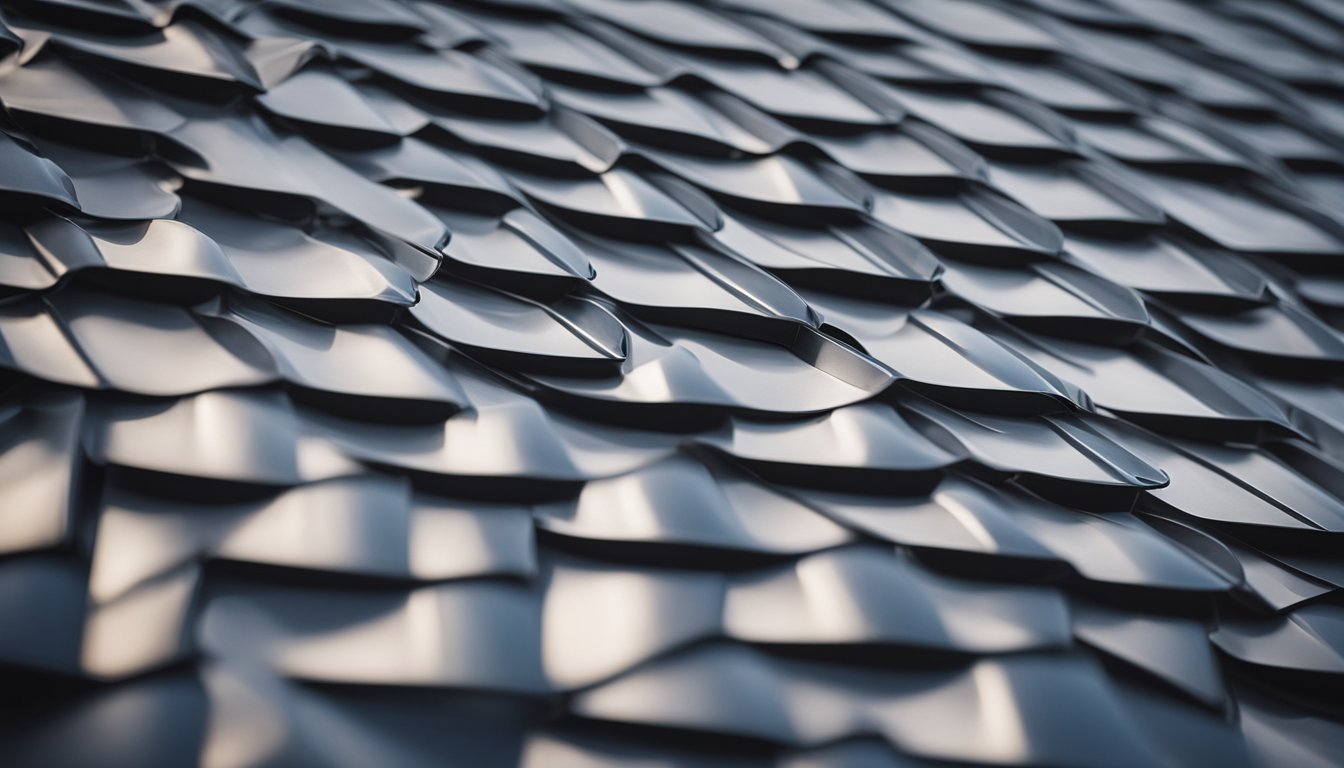
When considering metal roofing for UK homes, it's essential to focus on installation aspects, the benefits in local weather conditions, and the environmental and energy efficiency advantages.
Installation and Maintenance Insights
Installing metal roofing requires skilled professionals due to the specific techniques and tools needed. Proper installation ensures maximum performance, protecting homes from harsh weather conditions.
Metal roofs are largely low-maintenance. Occasional inspections help identify and resolve minor issues, such as loose fasteners or accumulated debris. Unlike other roofing types, metal doesn’t crack or corrode easily, making it a durable option that can last upwards of 50 years.
The initial costs can be higher compared to traditional materials, but the longevity and reduced maintenance needs offer long-term savings.
Benefits of Metal Roofing in UK Weather Conditions
One of the primary advantages of metal roofing is its resilience in various weather conditions found in the UK. Metal roofs withstand heavy rainfall, high winds, and even snow without significant wear, thanks to their robust construction.
The materials used in metal roofing, such as steel and aluminium, are also naturally corrosion-resistant. This quality ensures that the roof protects against rust and decay, which is common in wet climates.
Furthermore, metal roofing is fire-resistant, adding an extra layer of protection for the home. Its ability to shed snow and water prevents ice damming, a common issue in colder regions.
Environmental Advantages and Energy Efficiency
Metal roofing is highly environmentally friendly. Many metal roofing materials are made from recycled metals, and once their lifecycle ends, they can be fully recycled again, reducing waste.
In terms of energy efficiency, metal roofs reflect solar radiant heat, which helps reduce cooling costs. In the summer, homes stay cooler, diminishing the need for extensive air conditioning usage.
With better insulation properties, metal roofs also enhance the home’s overall energy performance, providing savings on heating during winter. This dual efficiency in regulating temperature contributes to a more sustainable and cost-effective home environment.
Frequently Asked Questions
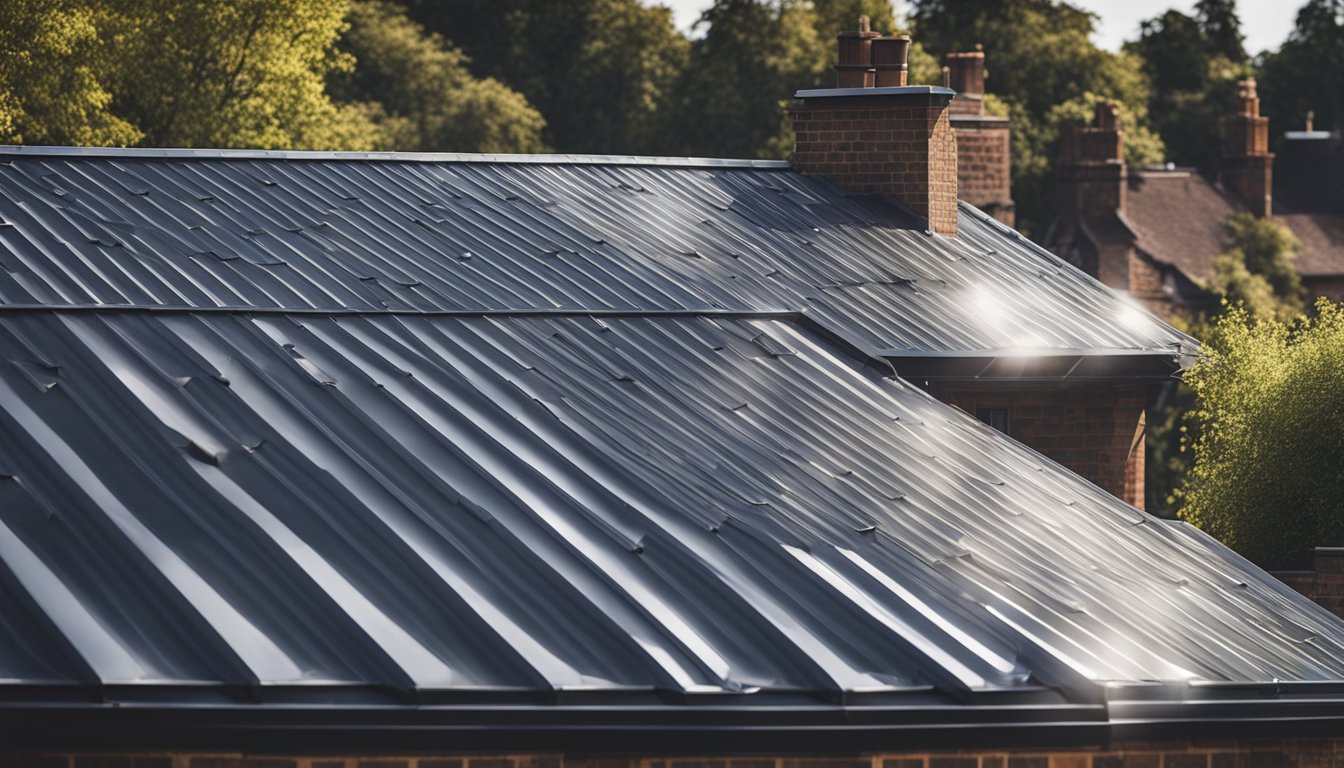
Here, we address some common questions regarding modern metal roofing options for UK homes, highlighting available systems, costs, innovations, companies, benefits, and materials.
What are the leading metal roofing systems available for UK homes?
Leading systems include standing seam, metal tiles, and corrugated metal roofing. Standing seam systems feature raised seams that provide a sleek appearance and superior moisture protection. Metal tiles mimic traditional roofing materials but offer enhanced durability. Corrugated metal roofing is valued for its strength and cost-effectiveness.
How does the cost of metal roofing compare to traditional materials in the UK?
Metal roofing typically costs more upfront compared to traditional asphalt shingles or concrete tiles. However, the longevity, minimal maintenance, and energy efficiency of metal roofs can result in significant long-term savings. Metal roofs often last 40-70 years, compared to 20-30 years for asphalt shingles.
What are the latest innovations in residential metal roofing?
Innovations include solar metal roofing panels and cool roofing technology. Solar panels integrated directly into metal roofs offer both energy generation and high durability. Cool roofing technology, which includes reflective coatings, helps reduce heat absorption, lowering cooling costs during hot months.
Which companies specialise in metal roofing installations for UK properties?
Several companies in the UK specialise in metal roofing installations, including Metrotile, Euroclad, and Marley. These companies offer a variety of metal roofing options, ensuring quality materials and professional installation. Choosing a reputable installer is critical for achieving the best results.
What are the benefits of using metal roofing for modern UK homes?
Metal roofing provides several benefits, including energy efficiency, longevity, and environmental sustainability. The reflective properties help reduce cooling costs. Metal roofs also boast a long lifespan and are often made from recyclable materials, contributing to reduced environmental impact.
Which metal roofing materials are known for their long-term durability and performance?
Materials such as steel, aluminium, and copper are renowned for their durability. Steel, available in various coatings, is highly resistant to corrosion. Aluminium is lightweight and resistant to rust. Copper, although pricier, offers unmatched longevity and a distinctive appearance that can last for over a century.
